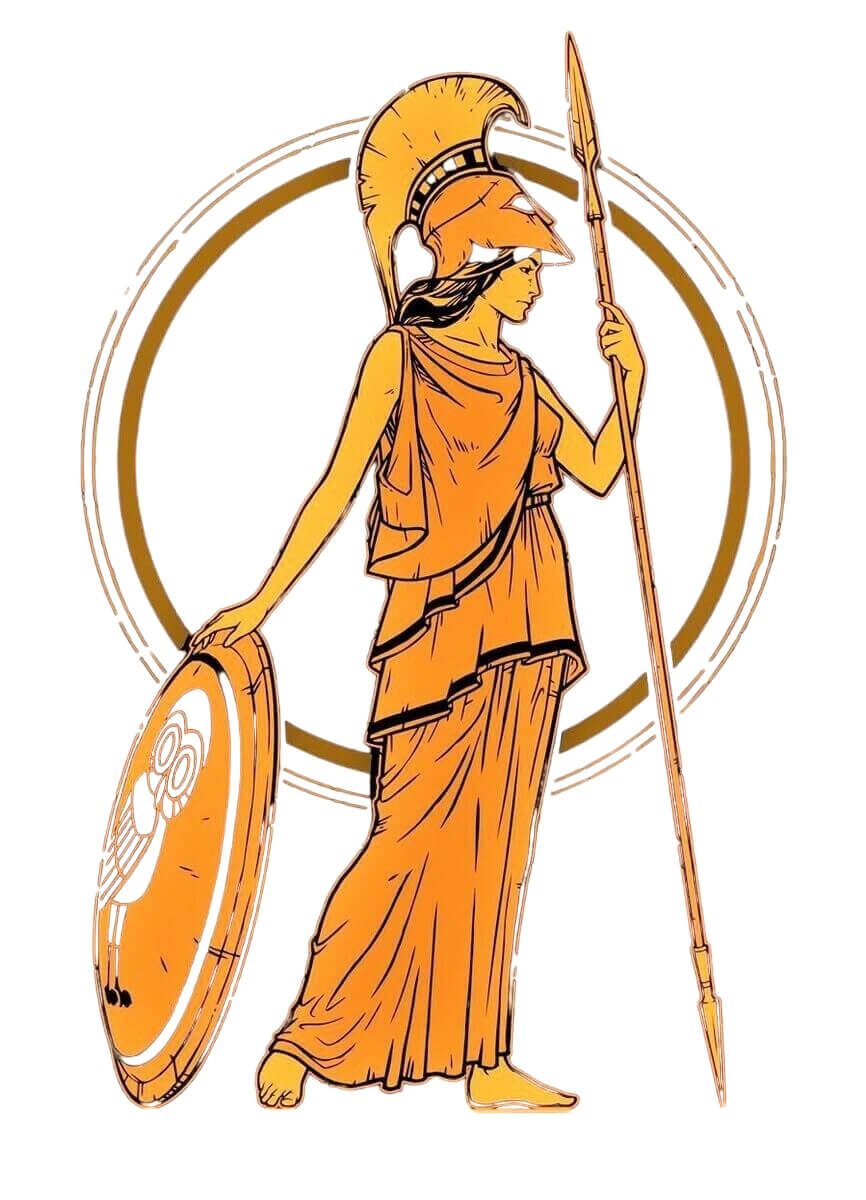Hermes: Greek god of Trade
Hermes was the herald of Olympus and Greek god of trade, cattle raising, wealth, eloquence and diplomacy, patron of merchants, roads and cunning. His closest friend and ally was usually the goddess of wisdom Athena, along with whom he had patronized and helped the most distinctive heroes, such as Perseus, Odysseus, Heracles and Theseus.
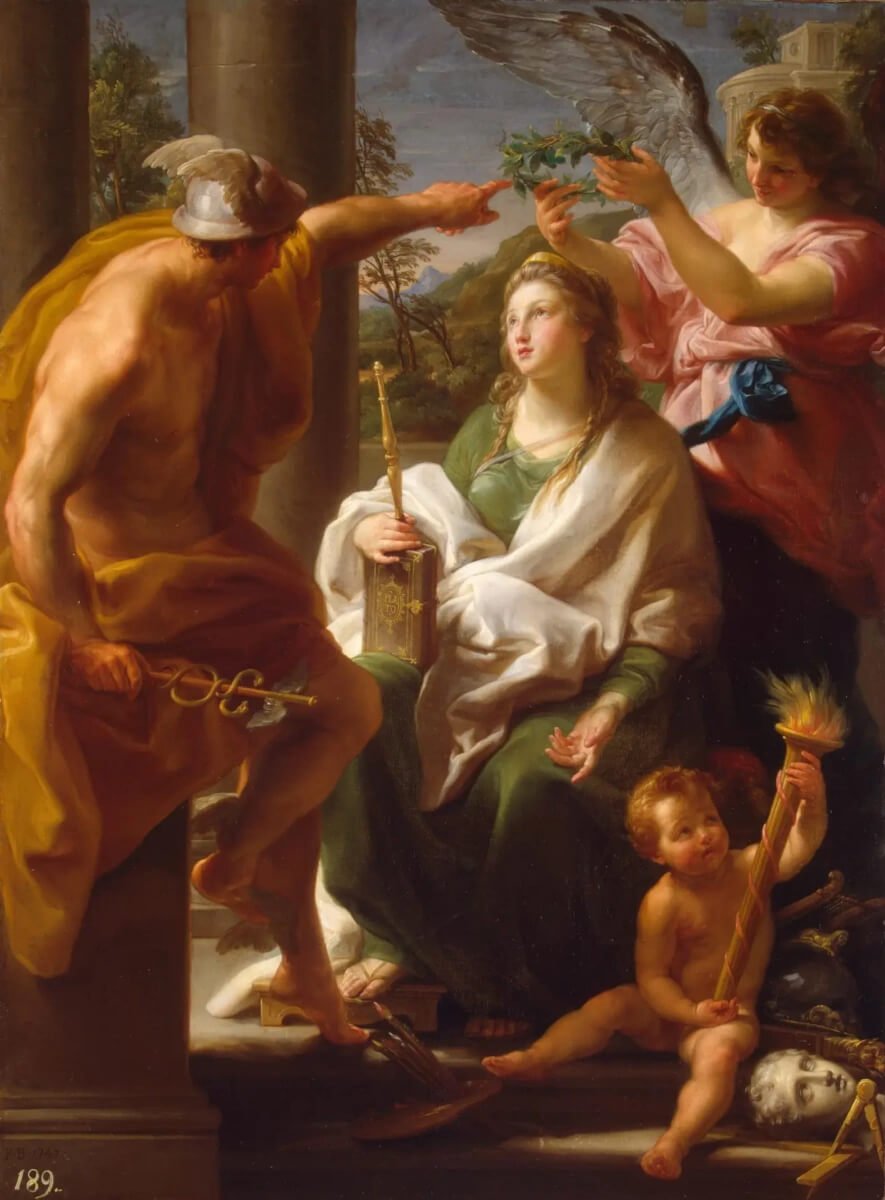
The Birth of Hermes
The god Hermes is the son of Zeus and nymph Maya. He was born in a deep cave of mount Cyllene in Arcadia, a sunny unruffled blithe area, land of shepherds and cattle. Barely born, he began his first deeds and funny mischiefs.
On the very first day after his birth, meanwhile his mother had gone away, Hermes climbed out of his cradle and began to explore the neighborhood of the cave. When he found a turtle, he killed it, removed its shell and strung seven sheep-gut strings inside it. This is how the lyre had been invented.
The new musical instrument bored Hermes afterwards, thus he went for a walk, trying to discover the world by himself. He walked further and further away until he came across a herd of fine cows belonging to Apollo. For sudden he got a daring hilarious plan. He wanted to steal the herd of the golden-haired god and make benefits for himself and his mother.
Hermes steals Apollo’s herd
Hermes stole the herd of cows, and drove them backwards all the way out of Apollo’s domain. So that the god of music could not guess where they went. The stolen cows had been hidden in a cave, which Hermes piled with a huge stone. Thereafter, he returned home, seeping into the room through the keyhole, in a form of a light cloud.
As a little willful felon, he lay in a cradle, wrapping himself with a small sheet, and holding a lyre under his arm. All these facts did not escape Maya’s eyes. Hence she blamed Hermes on theft and warned him to fear Apollo’s wrath.
“You cunning inventor! Aren’t you afraid that Apollo will punish you?” – she exclaimed worried. “Do not frighten me, mother! – answered calmly the little boy – “We will be engaged in a very profitable enterprise – the breeding of cattle. And if Apollo tries to do anything to me, I will break through the wall of his temple at Delphi and take away his favorite golden tripods. So, no one will be able to stop me!” Such kind of response, however, had flustered the timid mother of Hermes even more.
Apollo finds the thief
In the morning Apollo discovered that his cows were missing and went in search of them. But he could not find the herd, and bumped into a strange bright cave where an odd baby was lying in a cradle. Hermes seemed to be sleeping peacefully, but in fact was looking at him from under his lowered eyelids. Thinking, that he had found the possible wrongdoer, Apollo addressed Hermes with an alarming speech. Thence he had threatened him with grave consequences upon his childish felony. Afterwards he asked for his cows in return and frightened Hermes with the gloomy abyss of Tartarus.
The little god opened wide his eyes and feigned utter astonishment. “Son of Leto, at whom do you throw your harsh words? Do I look like a kidnapper? I was born only yesterday, my feet are tender and the ground is full of sharp stones. By the virtue of Gaia, I am not able to go after such a kind of corpulent cattle! If someone heard you, they’d say you’re out of your mind! And I don’t know what cows are like, I’ve only heard their name!”
However, these excuses did not help. Apollo grabbed Hermes by the collar and dragged him to Zeus for judgment. The lord of gods laughed at his son’s prank, but strictly ordered the cows to be returned.
Apollo and his wonderful lyre
Deadly despondent and unhappy Hermes strayed toward the cave where the cows were locked up, showing the way to Apollo. The god of music rolled away the stone and began to drive the herd outside, but suddenly remained astonished and speechless. He heard the sound of marvelous sublime music, coming from the outer side of the cave.
Charmed by its unbelievable beauty and forgetting about the cows, Apollo rushed out of the cave and saw Hermes, playing the lyre. He asked the little god to hand him the strange musical instrument, but he refused bitterly. However, a certain time after, Apollo managed to persuade him onto a swap. Hermes agreed to stay with the cows in exchange for the wonderful lyre. This way ended the enmity and feud between the two brothers, and they never quarreled again. Hermes was accepted on Olympus and had received his place among its extraordinary, bright members.
The herald of Olympus
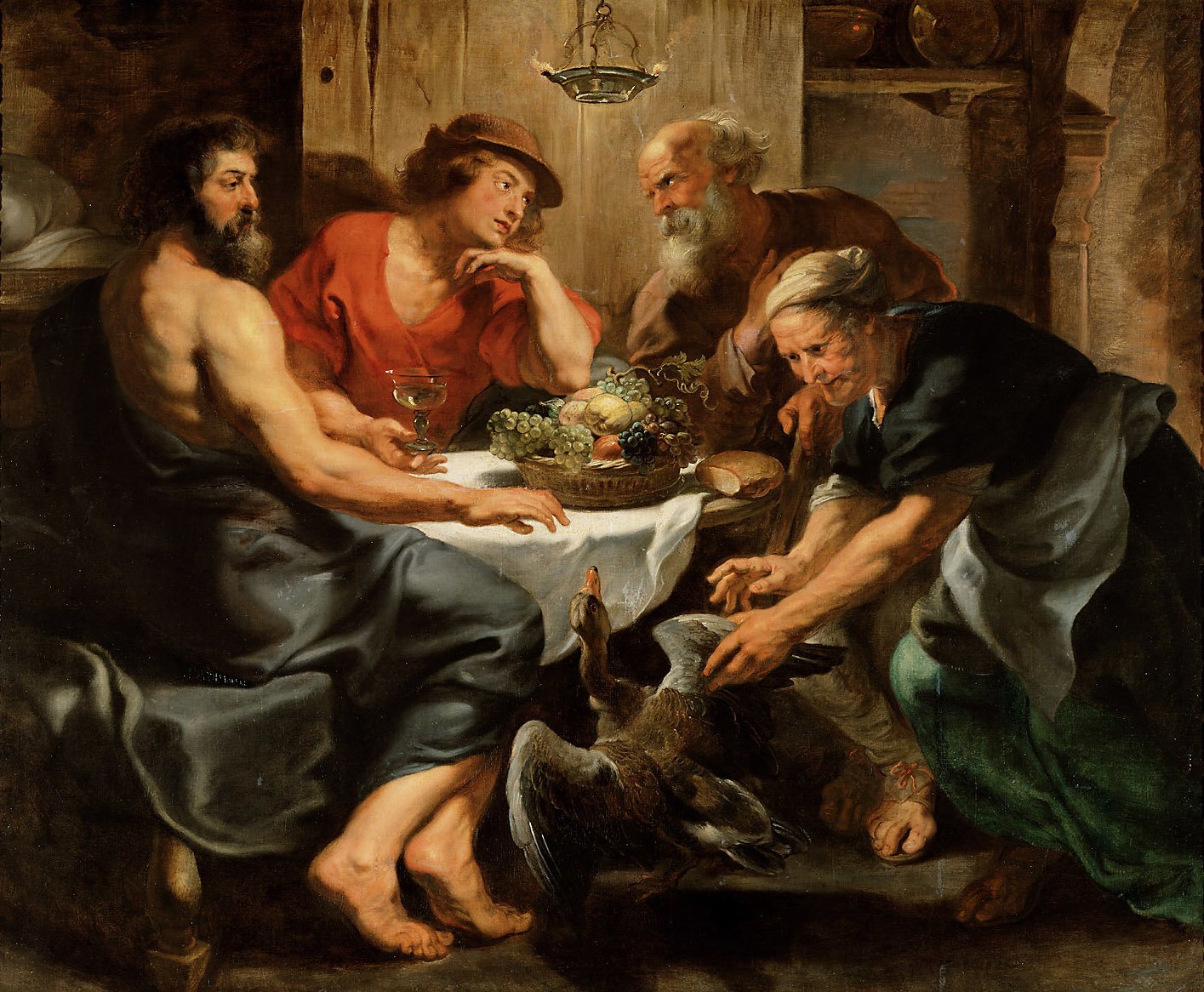
When the god Hermes grew up, he became a very acclaimed deity, among the entire group of the Olympians. Thereupon he stood out for his agility and cleverness. No one could surpass him in his versatile prowess for tricks and pranks. Once in time and as a joke he stole a scepter from Zeus. It was his cherished sign of power. From Poseidon – his trident, from Apollo – the golden arrows and bow, from Ares – his mighty impressive sword.
Intrepid and quick as a flash, Hermes was the Harold of gods and a messenger of Olympus. Zeus was sending him constantly to Earth with different sort of assignments. Faster than the wind, he was rushing through the air in his winged sandals, holding a magic staff in his hands. Its name was caduceus. Hermes had used it to plunge people into sleep and to descend without peril into the gloomy domain of Hades and return back. In fact, the god of trade was the only Olympian deity able to cross the boundary between the living and the dead. Many times afterwards he travelled successfully to the mournful realm of the Greek underworld.
Hermes as the patron of trade, roads and travelers
The god Hermes was renowned and venerated throughout all the villages, cities and towns of Ancient Greece. Over and above his duty as a messenger of Olympus he was an expert master of oratory, diplomacy and trade. On top of that, Hermes served as the main protector of merchants and travelers.
He safeguarded the ways and roads of Ancient Greece. Everywhere in Hellas at the entrances of houses, at crossroads, and even just by the paths and footpaths stood his famous stone images – the Hermae.
However, the god Hermes not only sheltered people from misfortunes and bad luck during their journey on roads. Furthermore, he guided the souls of the deceased onto the afterworld and was frequently depicted on ancient Greek gravestones.
Hermes as the god shepherd and patron of athletics
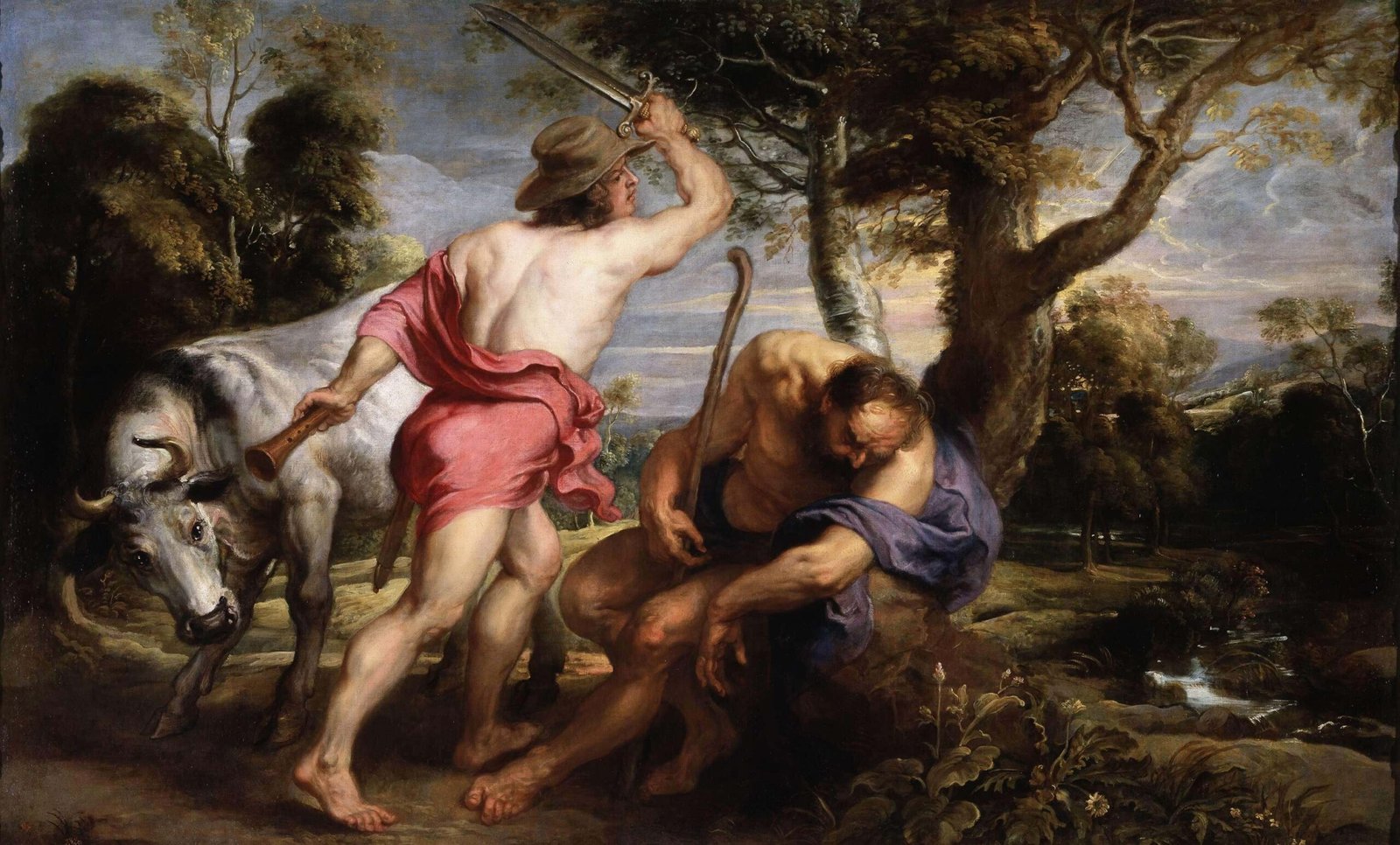
On the other side the Greeks had also worshiped and praised Hermes as the patron of shepherds, flocks and cattle raising. That being the case, the last tasks served as the primal source of wealth for the ancient type of entrepreneurs.
According to the Greek myths, the god of trade once saved the city of Boeotia from a very grievous plague, by bearing a ram along the city walls. A yearly festival in Ancient Greece commemorated this feat. Thereupon the most attractive boy from the village repeated the Hermes’s prowess. He carried a calf throughout the whole city in order to make its ritual sacrifice and protect the polis against diseases, famine and dry spell.
In addition to his duty as a protector of shepherds and herds, Hermes was also known as an august patron of gymnasia and palaestrae – ancient Greek centers of sport. The agility, swiftness and strength of Hermes, had bestowed him an imposing repute of grand champion.
The Hermaea, ancient sporting Greek festivals, in honor of Hermes had place at Pheneos in sunny Arcadia. They glorified his name and physique alongside Heracles as an outstanding example of athletic prowess and sporting skillfulness.
The meaning of Hermes in Greek Mythology
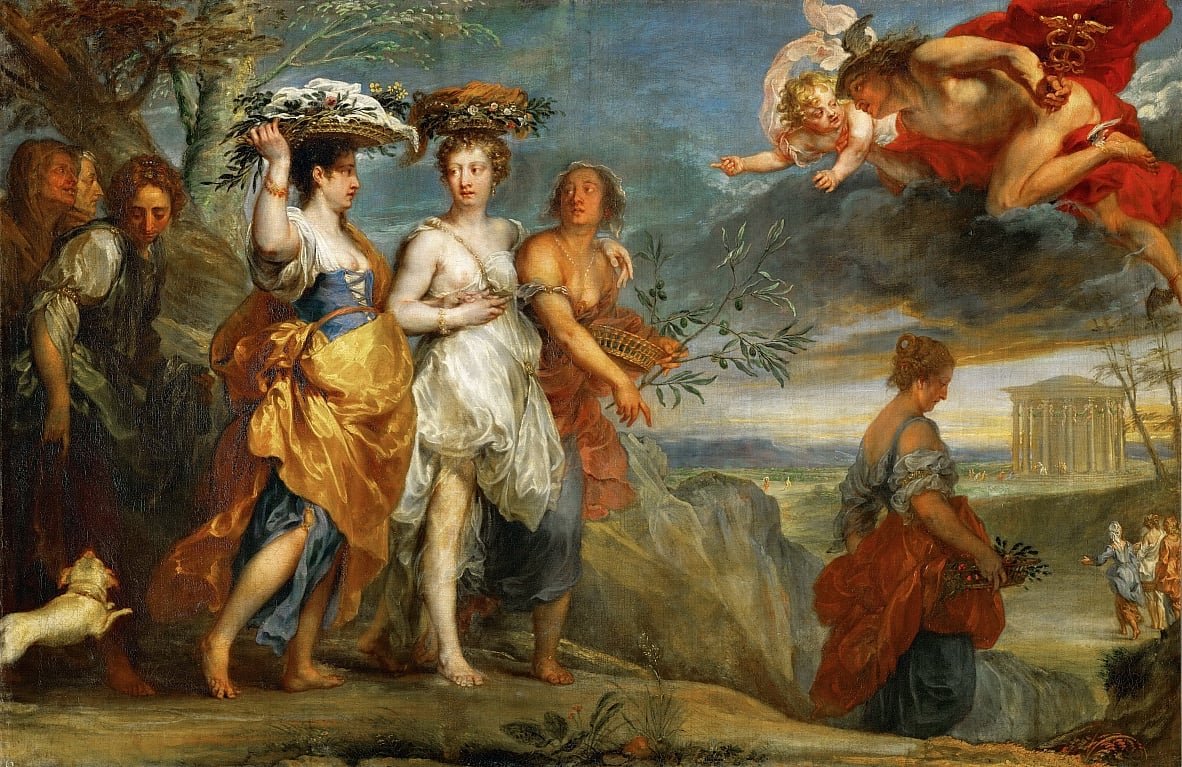
As a god of wealth, herds and trade, Hermes always behaved as a positive deity. Therefore, he never tried to condemn, corrupt or destroy humankind. On the the contrary he always defended the side of man.
He helped his father Zeus and decapitated the hundred-eyed giant Argus Panoptes, who guarded Zeus’s lover Io in a shape of cow. The god of trade also instructed his grandson Odysseus to protect himself from the poison of Circe. Hermes had also helped Perseus to slay the horrific Medusa. Furthermore, he saved Ares from his imprisonment by Otus and Ephialtes.
As a patron of trade Hermes helped the merchants to raise their money, the travelers to be safe and the shepherds to pasture their herds in peace. He never rejected people because of their imperfections, even the thieves and rogues had their opportunity to redeem and used their thick purses for the sake of their own lives.
The god Hermes acted like a benefactor and friend of man in such a way as his bright sister Athena. Even though once in time the trade and wisdom had to play a part in the unjust punishment of humanity. When Zeus ordered Hephaestus to create Pandora with the purpose to disgrace humankind, Athena and Hermes were forced to give her significant gifts of seduction. The goddess of wisdom dressed Pandora in a fabulous silvery dress and taught her needlework and weaving.
Hermes on his side, had granted her an unblushing mind, and gave her the power of speech and deceitful words. That being so, Zeus forced Athena and Hermes to collaborate in the destruction of humanity. In other words, the tyrant distorted the science and philosophy in order to enhance some sort of social hypocrisy. On the other side he had abolished the fair rules of the merchants and obliged them to collaborate in a sort of pernicious policies.
Thereupon the position of messenger in winged sandals describes exactly, whom always had been the traders, the merchants and entrepreneurs like Hermes for the odious king of Olympus. An impish devious errand boy, unworthy of respect because of being a traitor to the only primordial cause of Zeus, widely admired by his tellurian followers: to be the winner above everyone else and destroy champions and people, able to get greater success than mine. Demolish the truth, justice and freedom. To turn off the fire and will of Prometheus. Nobody has the right for his deserved piece of knowledge and worthy fruits of work! I am a rich and detestable peasant and king. But I still have the legitimate power to spoil the life of everyone, because I want and I can! And I enjoy it enormously!
Likely to be remembered for his connection with thieves and rogues, Hermes highlighted a very important philosophical meaning in the legends of Ancient Greece: Robbing someone like Zeus is not a crime, but a glorious feat, worthy of admiration. For this purpose, you always have time to enhance your thievery and cut the ties of humanity.
